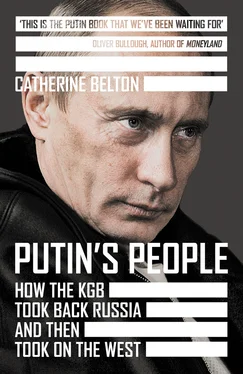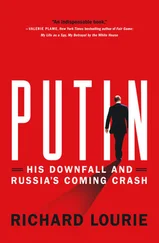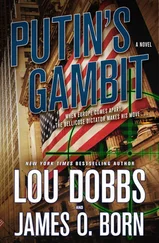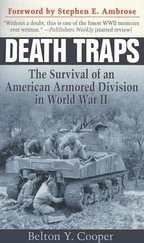Initially, after the fall of the Wall, the West German authorities believed the Stasi had provided only refuge and false identities to the Red Army Faction members. But as prosecutors continued to investigate the Stasi’s role, they found evidence of a much deeper collaboration. Their investigation led to the arrest and indictment of five former Stasi counter-terrorism officers for conspiring with the group to bomb the US’s Ramstein army base in 1981, and attempting to kill General Kroesen.[71] Stasi chief Erich Mielke was indicted on the same charges. One former Red Army Faction member emerged to tell how the group would frequently be used by the Stasi to transport weapons to terrorists in the Arab world.[72] Another former member spoke of working in the eighties as a handler for the notorious Carlos the Jackal,[73] who had lived for a time under Stasi protection in East Berlin, where he lived it up in the city’s most luxurious hotels and casinos.[74] Inge Viett later confessed that she’d attended a training camp in East Germany to prepare for the 1981 attack on General Kroesen.[75]
But amid the tumult of German reunification, there was no political will to root out the evils of the GDR’s past and bring the Stasi men to trial. The five-year statute of limitations on those charged with collaboration with the Red Army Faction was deemed to have passed, and the charges dropped away.[76] The memory of their crimes faded, while the KGB’s involvement with the Red Army Faction was never investigated at all. But all the while the Soviets had overseen the operations of the Stasi, with liaison officers at every command level. At the highest level KGB control was so tight that, according to one former Red Army Faction member, ‘Mielke wouldn’t even fart without asking permission in Moscow first.’[77] ‘The GDR could do nothing without coordination with the Soviets,’ said a defector from the senior ranks of the Stasi.[78]
This was the environment Putin was working in – and the story that the former Red Army Faction member had to tell about Dresden fitted closely with that. According to him, in the years that Putin served in East Germany, Dresden became a meeting place for the Red Army Faction.
Dresden was chosen as a meeting place precisely because ‘there was no one else there’, this former Red Army Faction member said.[79] ‘In Berlin, there were the Americans, the French and the British, everyone. For what we needed to do we needed the provinces, not the capital.’ Another reason the meetings were held there was because Markus Wolf and Erich Mielke wanted to distance themselves from such activities: ‘Wolf was very careful not to be involved. The very last thing a guy like Wolf or Mielke wanted was to be caught red-handed supporting a terrorist organisation … We met there [in Dresden] about half a dozen times.’ He and other members of the terrorist group would travel into East Germany by train, and would be met by Stasi agents waiting in a large Soviet-made Zil car, then driven to Dresden, where they were joined in a safe house by Putin and another of his KGB colleagues. ‘They would never give us instructions directly. They would just say, “We heard you were planning this, how do you want to do it?” and make suggestions. They would suggest other targets and ask us what we needed. We always needed weapons and cash.’ It was difficult for the Red Army Faction to purchase weapons in Western Germany, so they would hand Putin and his colleagues a list. Somehow, this list would later end up with an agent in the West, and the requested weapons would be dropped in a secret location for the Red Army Faction members to pick up.
Far from taking the backseat role often ascribed to him during his Dresden years, Putin would be among the leaders in these meetings, the former Red Army member claimed, with one of the Stasi generals taking orders from him.
As the Red Army Faction sowed chaos across West Germany in a series of vicious bomb attacks, their activities became a key part of KGB attempts to disrupt and destabilise the West, the former member of the terror group claimed. And, as the end loomed for Soviet power and the GDR, it’s possible that they became a weapon to protect the interests of the KGB.
One possible such attack came just weeks after the Berlin Wall’s fall. It was 8.30 in the morning on November 30 1989, and Alfred Herrhausen, chairman of Deutsche Bank, was setting off from his home in Bad Homburg, Frankfurt, for his daily drive to work. The first car in his three-car convoy was already heading down the road that was his usual route. But as Herrhausen’s car sped to follow, a grenade containing 150 pounds of explosives tore through his armoured limousine, killing him instantly. The detonator that set off the grenade had been triggered when the limousine drove through a ray of infrared light beamed across the road.[80] The attack had been carried out with military precision, and the technology deployed was of the highest sophistication. ‘This had to be a state-sponsored attack,’ said one Western intelligence expert.[81] Later, it emerged that Stasi officers had been involved in training camps at which Red Army Faction members had been instructed in the use of explosives, anti-tank rockets and the detonation of bomb devices through photo-electric beams just like the one used in the Herrhausen attack.[82]
Herrhausen had been a titan of the West German business scene, and a close adviser to West German chancellor Helmut Kohl. The attack came just as reunification had suddenly become a real possibility. This was a process in which Deutsche Bank could stand to gain massively from the privatisation of East German state enterprises – and in which Dresdner Bank, where Putin’s friend the Stasi officer Matthias Warnig would soon be employed, was to battle with Deutsche for the spoils. According to the former Red Army Faction member, the attack on Herrhausen was organised for the benefit of Soviet interests: ‘I know this target came from Dresden, and not from the RAF.’[83]
For the former Red Army Faction member those days now seem long ago and far away. But he can’t help but remember with regret that he was no more than a puppet in Soviet influence games. ‘We were no more than useful idiots for the Soviet Union,’ he said with a wry grin. ‘This is where it all began. They were using us to disrupt, destabilise and sow chaos in the West.’
When asked about the Stasi and the KGB’s support for the Red Army Faction, a shadow falls across the still spry face of Horst Jehmlich, the former Dresden Stasi fixer-in-chief. We are sitting around the dining table of the sunlit Stasi apartment he’s lived in ever since the GDR years, just around the corner from the Stasi headquarters and the villa of the KGB. The fine china is out for coffee, the table is covered with lace. The Red Army Faction members were only brought to the GDR ‘to turn them away from terrorism’, he insists. ‘The Stasi wanted to prevent terrorism and stop them from returning to terrorist measures. They wanted to give them a chance to re-educate themselves.’
But when asked whether it was the KGB who were in fact calling the tune, whether it was Putin who the Red Army Faction members were meeting with in Dresden, and whether the order for the Herrhausen attack could have emanated from there, the shadow across his face becomes darker still. ‘I don’t know anything about this. When it was top-secret, I didn’t know. I don’t know whether this involved the Russian secret service. If it is so, then the KGB tried to prevent that anyone knows about this material. They will have said that this is a German problem. They managed to destroy many more documents than us.’[84]
The former Red Army Faction member’s story is near-impossible to verify. Most of his former comrades are either in prison or dead. Others allegedly involved in the meetings back then have disappeared off the grid. But a close Putin ally from the KGB indicated that any such allegations were extremely sensitive, and insisted that no connection between the KGB and the Red Army Faction, or any other European terrorist group, had ever been proved: ‘And you should not try to do so!’ he added sharply.[85] At the same time, however, the story he told about Putin’s resignation from the security services raised a troubling question. According to this former KGB ally, Putin was just six months from qualifying for his KGB pension when he resigned – at thirty-nine, he was far younger than the official pension age of fifty for his rank of lieutenant-colonel. But the KGB doled out early pensions to those who’d given special service in terms of risk or honour to the motherland. For those who were stationed in the United States, one year of service was considered as one and a half years. For those who served time in prison, one year’s service was considered three. Was Putin close to gaining an early pension because one year’s service counted as two, as a result of the high risk involved in working with the Red Army Faction?
Читать дальше












